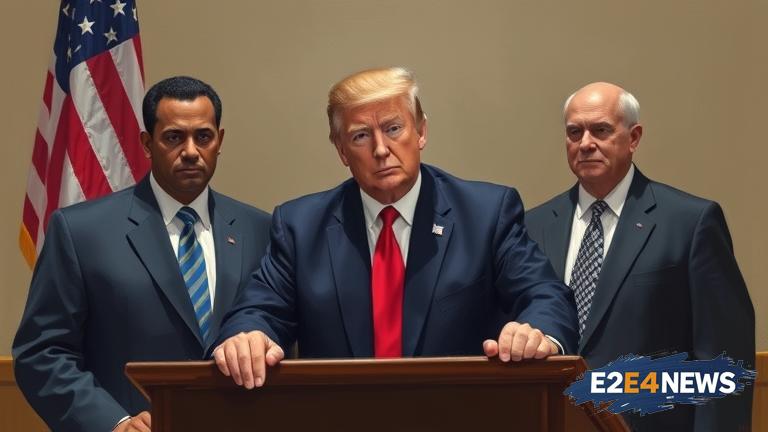A federal judge has announced plans to pause President Trump’s executive order aimed at ending birthright citizenship, a move that has been met with widespread criticism and controversy. The order, which was announced in late October, sought to revoke the long-standing policy of granting automatic citizenship to children born in the United States to non-citizen parents. The judge’s decision to intervene has been seen as a significant setback for the Trump administration, which has argued that the policy is necessary to prevent immigration fraud and abuse. However, opponents of the order argue that it is unconstitutional and would unfairly target immigrant families. The issue of birthright citizenship has been a contentious one in the United States, with some arguing that it is a fundamental right guaranteed by the 14th Amendment to the Constitution. Others argue that it is a loophole that is being exploited by immigrants seeking to gain citizenship for their children. The Trump administration has argued that the policy is being abused by immigrants who are coming to the United States solely to give birth, a practice known as ‘birth tourism.’ However, critics argue that this is a rare occurrence and that the vast majority of immigrants are coming to the United States to work and build a better life for themselves and their families. The judge’s decision to pause the order is seen as a significant victory for immigrant rights groups, who have been fighting against the policy since it was announced. The groups argue that the policy would have a devastating impact on immigrant families, who would be forced to choose between their children’s citizenship and their own ability to remain in the United States. The controversy surrounding the order has also sparked a wider debate about the meaning and scope of the 14th Amendment, which guarantees citizenship to all persons born in the United States. Some argue that the amendment was intended to apply only to the children of citizens, while others argue that it applies to all persons born in the United States, regardless of their parents’ immigration status. The issue is likely to be decided ultimately by the Supreme Court, which has previously ruled on the issue of birthright citizenship. In the meantime, the judge’s decision to pause the order has provided a temporary reprieve for immigrant families, who will continue to be able to access citizenship for their children born in the United States. The controversy surrounding the order has also highlighted the deep divisions within the United States over issues of immigration and citizenship. As the debate continues, it is clear that the issue of birthright citizenship will remain a contentious and highly politicized one. The Trump administration has vowed to continue fighting for the policy, while immigrant rights groups have pledged to continue fighting against it. The outcome of the controversy is far from certain, but one thing is clear: the issue of birthright citizenship will continue to be a major point of contention in the United States for years to come. The federal judge’s decision to pause the order has also raised questions about the limits of executive power and the role of the judiciary in checking the actions of the executive branch. The decision has been seen as a significant assertion of judicial authority, and has sparked a wider debate about the balance of power between the branches of government. As the controversy continues to unfold, it is clear that the issue of birthright citizenship will have far-reaching implications for the United States and its immigration policies.
